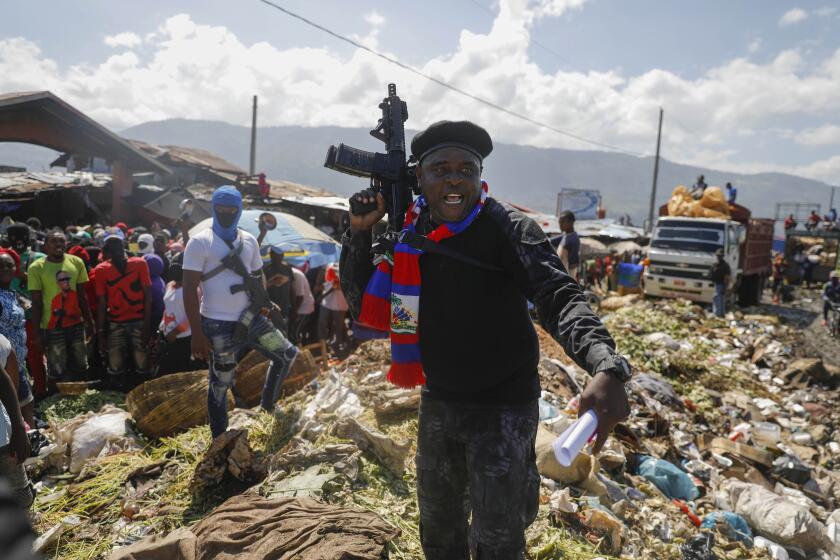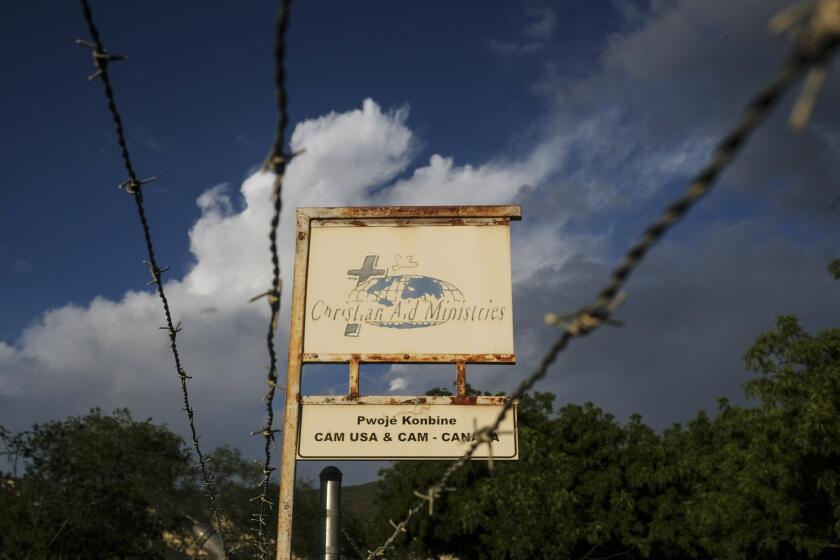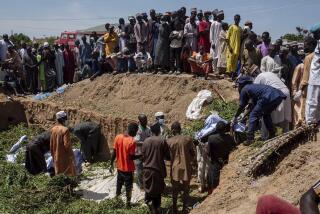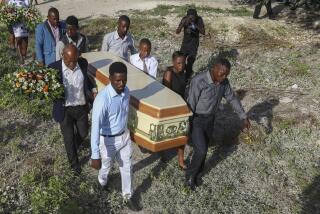At least 60 killed in gasoline truck explosion in northern Haiti
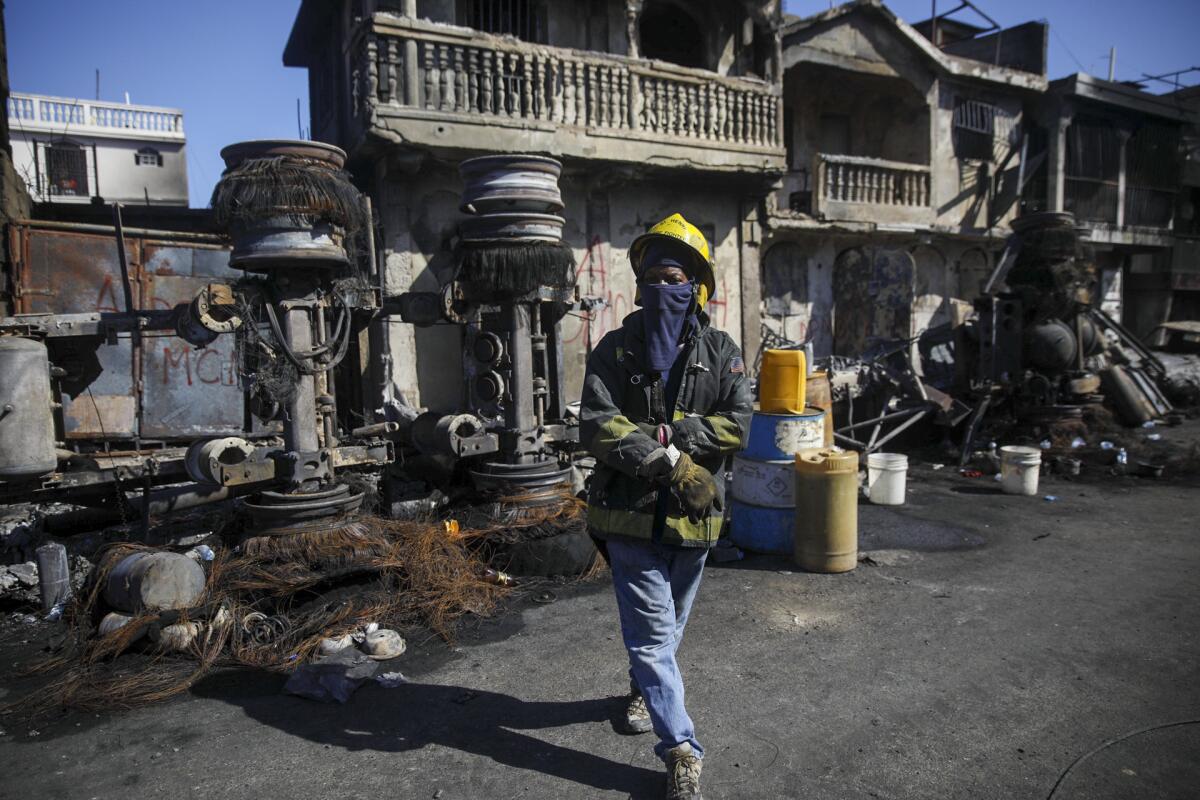
CAP-HAITIEN, Haiti — A gasoline tanker overturned and exploded in northern Haiti, unleashing a fireball that swept through homes and businesses on its way to killing at least 60 people Tuesday in the latest tragedy to befall the Caribbean nation.
The blast occurred shortly after midnight in Cap-Haitien, Haiti’s second-largest city, along the northern coast. Hours later, buildings and overturned vehicles were still fuming as firefighters covered the burned bodies of the young victims with white sheets and loaded them onto the back of a construction truck.
Hundreds of Haitians — who aren’t easily shocked amid their country’s multiple misfortunes — looked on from rooftops in disbelief at the loss of so much life. Prime Minister Ariel Henry, himself a physician, visited a hospital where victims bandaged head to toe were fighting for their lives amid a shortage of medical supplies and health workers.
“It’s horrible what happened,” said Patrick Almonor, deputy mayor of Cap-Haitien, adding that he expects the death toll to rise as first responders comb through buildings gutted by the fire. “We lost so many lives.”
Among survivors who spoke with the prime minister was Riche Joseph, who spent hours on the floor of Justinien University Hospital, the city’s largest, connected to an IV while he waited for a bed.
His sister, Bruna Lourdes, said her brother stepped out of the house late at night to look for something to eat. When she heard the explosion, she rushed down from the hillside shantytown in panic.
Upheaval in Haiti is a product of its fractious politics, and those politics are deeply entwined with U.S. influence.
“I’m praying to God that he won’t take his life,” said Lourdes, who is studying to be a nurse and plans to spend the night by her brother’s side to offer whatever assistance she can to the overstretched medical staff.
Early reports indicate that the tanker was trying to avoid an oncoming motorcycle when it flipped. Onlookers then rushed to the scene with buckets to scoop up what they could of the tanker’s valuable cargo, likely for resale on the black market, as the fuel spilled toward a nearby pile of smoldering trash.
“It was after midnight and I heard a loud noise so I asked one of my boys to go and look. He told me a gasoline truck exploded,” said Abraham Joanis, 61, as he carried around a guitar rescued unscathed from the charred remains of his home, one of 50 gutted by the blaze.
“Right away, I left with my family, and I headed the other way to the bridge,” he added.
An Ohio-based church organization says two of 17 abducted members of a missionary group have been freed in Haiti.
Contributing to the high death toll is the desperation that has forced impoverished Haitians in recent months to scramble for gasoline due to severe shortages that have shuttered gas stations, sent fuel prices on the black market spiraling and forced businesses to close as the U.S. and Canadian governments warn their citizens to leave while they still can.
The shortages are the latest manifestation of a society that has been on the brink since the July 7 assassination of President Jovenel Moise and a 7.2 magnitude earthquake a few weeks later that killed more than 2,200 people and destroyed tens of thousands of homes.
The country of more than 11 million people also has been hit by a spike in gang-related kidnappings, including 17 people with a U.S. missionary organization who were abducted in mid-October. Five of them have been released but 12 others are still being held.
“It’s terrible what our country has to go through,” said Dave Larose, a civil engineer who works in Cap-Haitien.
Hospitals in the city seemed ill equipped to deal with the disaster and 15 victims had to be evacuated by air to hospitals in the capital, Port-au-Prince.
Some of the burn victims were being treated by teams from Doctors Without Borders.
“Surviving and recovering from a severe burn is a difficult process that requires specialized medical care, often for weeks or months,” said Jean-Gilbert Ndong, the group’s medical coordinator. “We will continue to receive patients according to the needs and our capacity.”
Burn victims at Justinien hospital screamed in agony as they pleaded for basic supplies and more medical staff.
Henry, wearing a biohazard suit, clasped his hands and leaned over to console one man collapsed on the hospital’s concrete floor because there were not enough beds in the historic city’s largest hospital.
The prime minister promised more help in the form of field hospitals and a contingent of medical professionals. But minutes after he left the facility, five more patients died.
“The entire Haitian nation is grieving,” Henry said on Twitter while declaring three days of national mourning. “It is with a torn heart that I see the critical condition of some of our compatriots admitted to this facility.”
Sanon reported from Port-au-Prince. AP writer Joshua Goodman contributed to this report from Miami.
More to Read
Sign up for Essential California
The most important California stories and recommendations in your inbox every morning.
You may occasionally receive promotional content from the Los Angeles Times.
